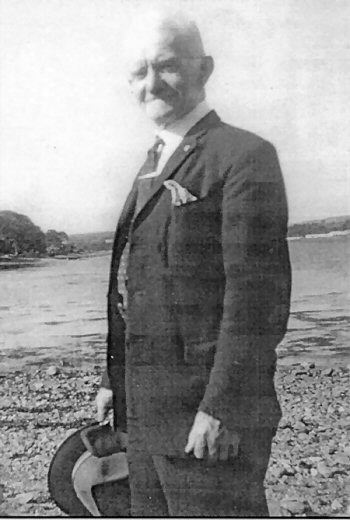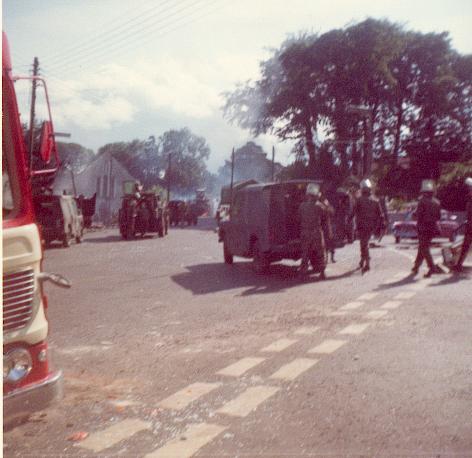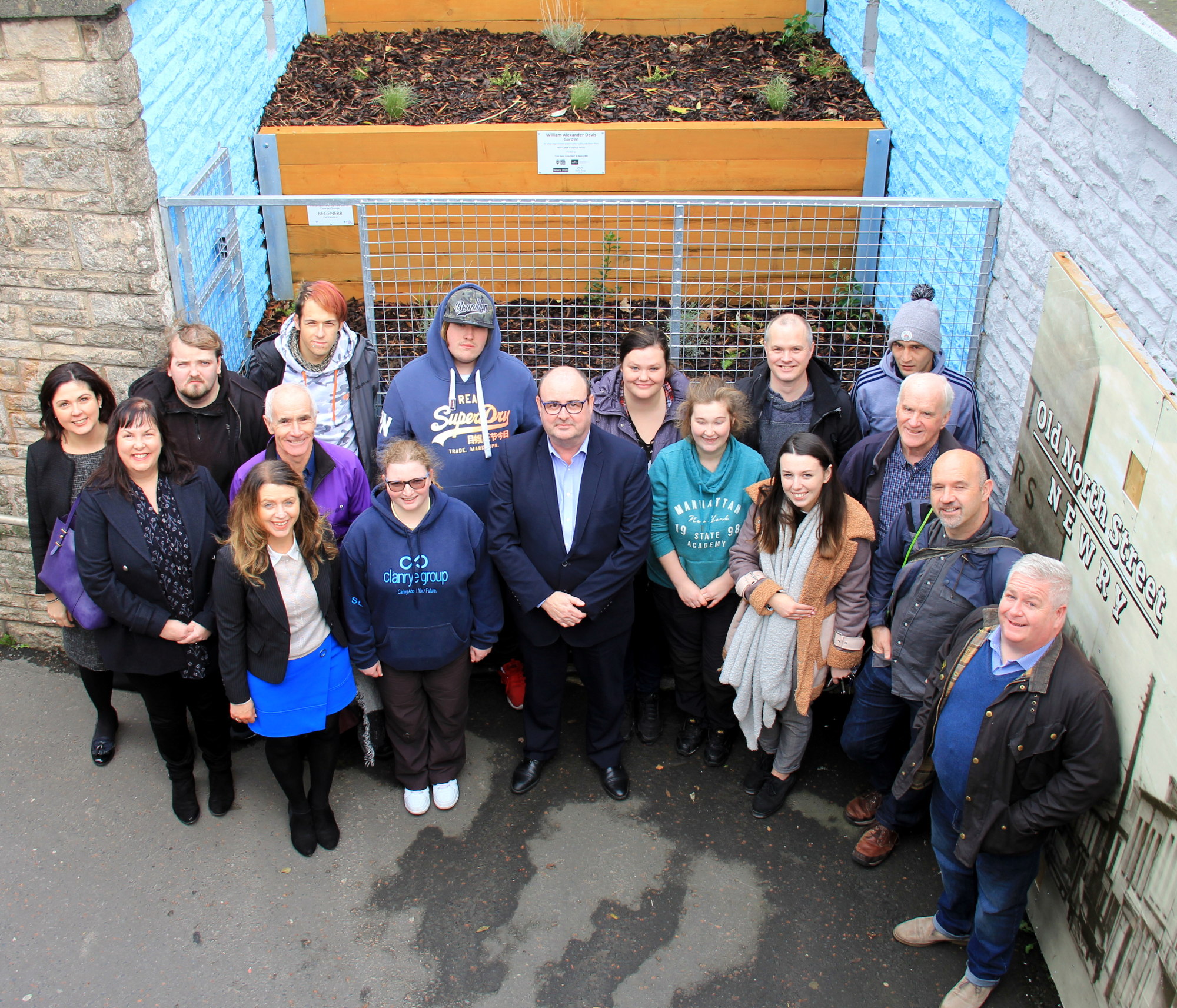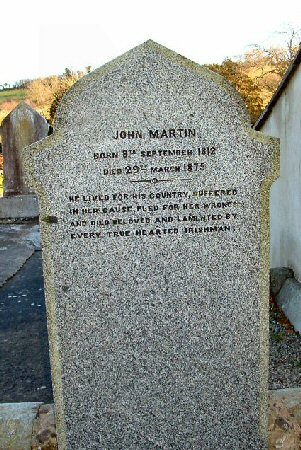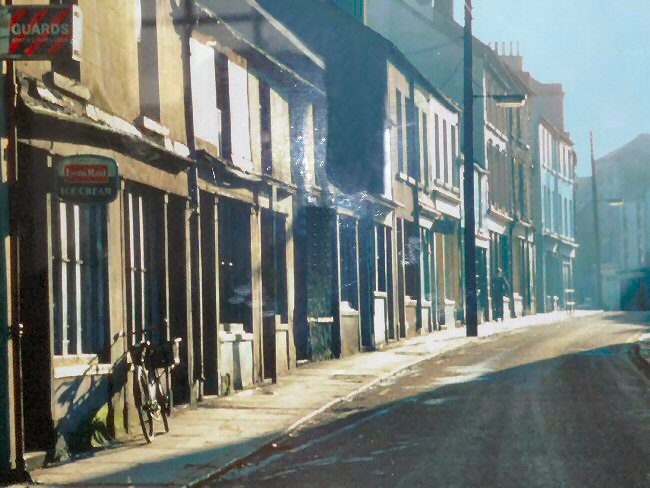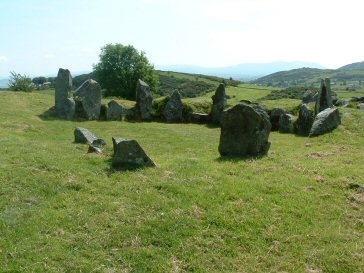Latest News
Latest Newry news headlines from Newry Times
[wp-rss-aggregator feeds=”151082″]
50 years ago: PD March
Civil Rights Movement
One knows one is ageing fast when yesterday’s happenings are surreal, like a dream, quickly forgotten, yet events of 50 years ago shine brightly in one’s memory.
Today’s Irish News, ON THIS DAY column, recounts the events surrounding a Peoples Democracy protest in Armagh City on July 11 1969. Despite the detail below, I remember it for two reasons :
1. This was my first direct confrontation with the extremism and bitterness of loyalism, led of course by the great Satan himself, Ian Paisley – and I was shocked and very scared, knowing that these counter-demonstrators would like nothing better than to attack and severely injure – if not kill – us, for demanding One Man One Vote and equal rights and treatment. There was no doubt whatsoever that the police – RUC – were on their side and, but for the TV cameras, would also like such a result.
2. One of our number, my school colleague and friend from Derrybeg Estate Newry, Gerry Ruddy, was accompanied by a young Queens student, Briege, from The Bone, Ardoyne, North Belfast, and the two were inseparable and very much in love. As always, the human story was more meaningful to me.
I am happy to report that they married soon after, reared a family and are together to this day. Briege was a lovely girl, is a fine lady and occasionally makes the headlines this time of year, representing the interests of the much beleaguered residents of the Holy Land. Anyway, the story from the newspaper follows …
Four members of Armagh Civil Rights Committee, including Senator Garry Lennon, leader of the Nationalist Party in the Senate, staged an all-night sit-in at Armagh City Hall.
This followed clashes in the streets between members of Peoples Democracy and the police. About 200 PD supporters staged an impromptu march.
When they reached the top of Scotch Street, which leads to a Protestant area (sic!) they were confronted by 30 policemen And three Land Rovers.
Scuffles broke out and stones and bottles were thrown.
Two PD members were reported to have been slightly injured.
Newsreader
Karen couldn’t quite believe her good fortune. It had been her ambition since childhood to carve for herself a career in front of the TV cameras. To that end she had taken elocution lessons, attended Drama School for three years, fared well academically and even acquired a few diplomas – some with commendation – along the way.
Hundreds had applied for the advertised post of Assistant BBC TV Newsreader and only five had been shortlisted for interview. And she was one!
Why me? She wondered idly as she waited to be called. Perhaps it was my qualifications, my experience, maybe they were impressed with the newsreading rehearsal video I sent, perhaps even my appearance. She discretely withdrew a make-up mirror from her purse to examine her image.
On the advice of her father, she had opted for an understated charcoal grey suit, with knee-length skirt, an open-necked white blouse, buttoned to the neck, and a ‘sensible’ pair of slip-on black (flat) shoes.
Her father – a long-retired radio (yes.. just radio .. she’d go one better!) announcer, and her best friend, had tutored her on all aspects of the interview and prospective profession, though, she reflected carefully, things might just have changed a little since his day.
..
“I knew your father, way back in the day – when I first started!” confided the bespectacled grey suit (colour-matching her own !!) across the city desk from her. He watched for her reaction.
‘He pulled strings!’ Karen thought, and was certain that her eyes betrayed her emotions. She quickly recovered and smiled sweetly, nodding demurely.
“The bad old days!” the suit continued. Again her eyes gave her away.
“Can you roll your R’s ?” he suddenly spurted. Karen panicked. As she covered her alarm with another demure smile, she asked herself: Did he just say R’s ? Or .rs. ?
“Roland Rat rode rigorously round the ring road”, she enunciated in her best plummy Estuary Accent and elocution voice, emphasising each R as she rolled her tongue in the middle of her mouth, and shaped her lips in a perfect O.
“No! No! No!” he cried in clear dismay. “I mean, like Naomi Campbell on the catwalk, or Rachel Riley on Countdown!

“And forget the fake so-called BBC newsreader accent. That was back in the 1950-70s, in your father’s day. Now you gotta sound like … well .. for example .. Steph McGovern!”
As she struggled to cover her dismay and alarm, he leaned discreetly forward and punched a button on the machine before him.
A dreadful cacophony of noise erupted, splitting the room and piercing her ears. A frenzied drummer was hammering out rolls and riffs, punctuated with crashing cymbals while the brass section – trumpets, sax, trombones and horn – was giving free vent to its collective musical creativity.
“Go ahead!” said the suit. “Read the news from the sheet in front of you. ABOVE the sound of the intro. You’ll have to adopt a high-pitched falsetto tone – just to be heard above the musicians.” And he smiled. He actually smiled. He was enjoying this.
“And for heaven’s sake, undo the top three buttons of that blouse, relax and give us some flash of cleavage!
And accent the words completely at random: Breathe in all the wrong places: If there’s a number in there, put heavy emphasis of the first syllable (THOUS ..ands) to grab the audience’s attention.
We need a bit of interpretation in the news today!” He paused. “Have you got all that?” He allowed one second for her reaction, which didn’t come in that short time.
“You’re only getting this interview as a favour to your father! You appreciate that?”
That was it. Karen could take no more and she burst out crying. She hastily fetched a tissue from her purse to wipe away her tears.
The suit jumped to his feet, beaming, his eyes alight with excitement.
“That’s it!” he exclaimed. “Exactly! Our audience just LOVES to see emotional reaction like that! By the way, was that natural or affected?”
Karen recovered. “Which is better?” she asked.
“Brilliant!” he roared. “The perfect answer!
The job’s yours!”
Julie Fowlis Concert
Yesterday evening my wife and I attended Julie’s superb concert in Rosemary St First Presbyterian Church, which featured also her husband Eamon Doorley AND John McIntyre and Zoe Conway – who are also husband and wife.
I’d highly recommend you buy their new CD ‘Alt.’
Julie is my favourite singer in all the world!
William Alexander Davis Garden
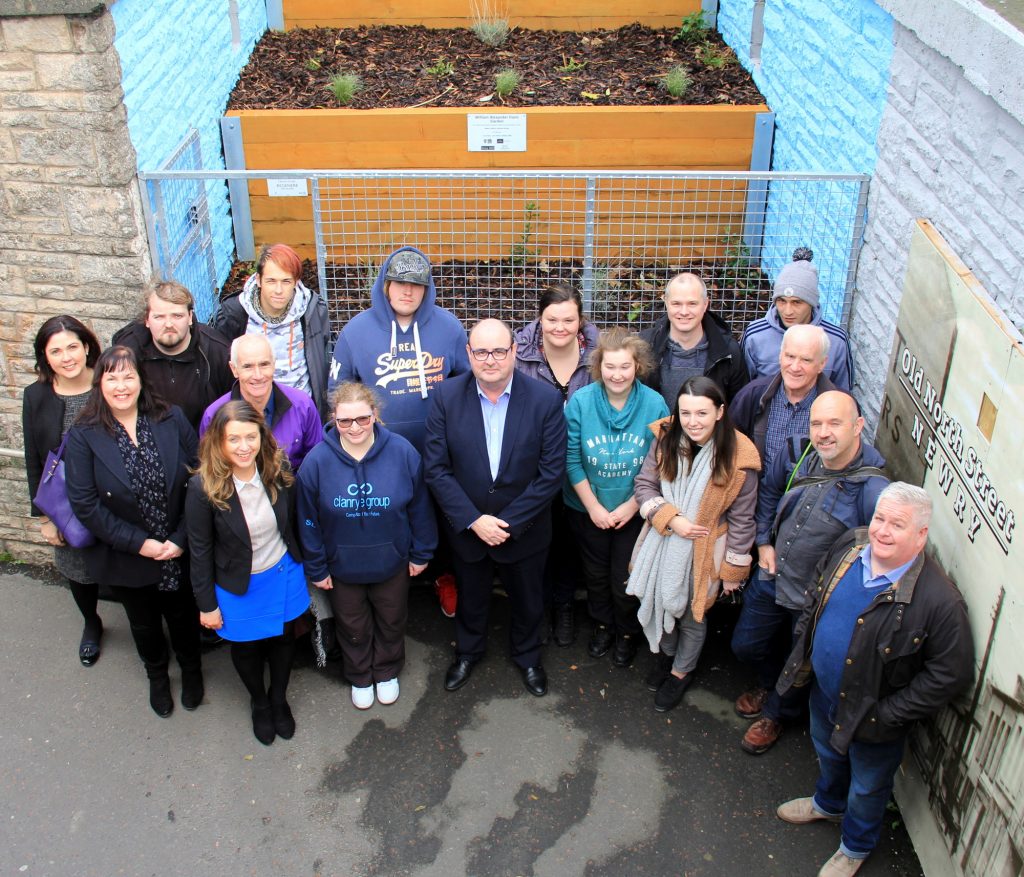
Front: Jackie Campbell (Regener8 Co-ordinator), Dara O’Hagan (Manager of Youth and Family Service), Tony McAteer (Regener8 Co-ordinator), Shannon Laffin, Liam Devine (Manager Clanrye Group), Caoimhe Quinn, Leah Stuttard (Admin), John McCullagh, Garry McElherron (Newry 2020), Shane Smith (Tutor).
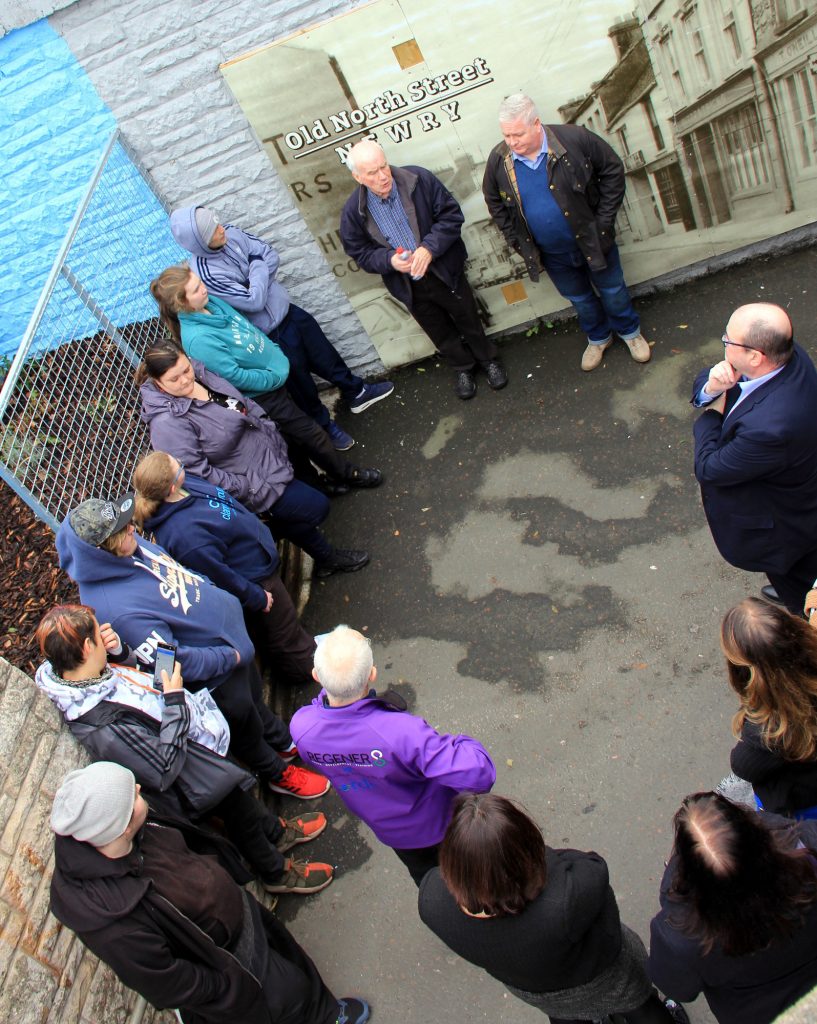



Newry’s Greatest …
Newry`s Greatest
Who is Newry`s greatest?
An unusual & entertaining show is staged on Friday, 28th February at 7.30 p.m. in Newry City hall.
It is a good news story because it assesses who did most for the people of Newry since 1144.
7 characters from the past – ranging from the first Cistercian Abbot; John Richardson of Bessbrook; John Mitchel & Sean Hollywood compete to be Newry`s Greatest. The others are Richard Castle, canal builder; Francis Carvill, entrepreneur; & the Russell sisters, Mercy nuns & social reformers.
The Magnificent Seven will be championed in twelve minute power point presentations. Then an election takes place – the winner being decided by the audience using voting machines – a first in N. Ireland, probably. That innovation could attract people from all over N. Ireland, we hope.
Proceeds go to Concern Worldwide`s Syrian refugees.
Green or not … ?
Checking out at the supermarket, the young cashier suggested to the older woman that she should bring her own grocery bags because plastic bags weren’t good for the environment.
The woman apologised and explained, “We didn’t have this green thing back in my earlier days.”
The young blade responded, “That’s our problem today. Your generation did not care enough to save our environment for future generations.”
She was right – our generation didn’t have the green thing in its day.
Back then, we returned milk bottles, lemonade bottles and beer bottles to the shop. The shop sent them back to the plant to be washed and sterilised and refilled, so it could use the same bottles over and over. So they really were recycled.
But we didn’t have the green thing back in our day.
Grocery stores bagged our groceries in brown paper bags that we reused for numerous things, most memorable besides household garbage bags was the use of brown paper bags as book covers for our schoolbooks. This was to ensure that public property (the books provided for our use by the school) was not defaced by our scribblings. Then we were able to personalise our books on the brown paper covers: ready for recycling to new users the following year.
But too bad we didn’t do the green thing back then.
We walked up stairs, because we didn’t have an escalator in every store and office building. We walked to the grocery store and didn’t climb into a 300-horsepower machine every time we had to go two hundred yards.
But she was right. We didn’t have the green thing in our day.
Back then, we washed the baby’s nappies because we didn’t have the throwaway kind. We dried clothes on a line, not in an energy-gobbling machine burning up 220 volts — wind and solar power really did dry our clothes back in our early days. Kids got hand-me-down clothes from their brothers or sisters, not always brand-new clothing.
But that young lady is right; we didn’t have the green thing back in our day.
Back then, we had one TV, or radio, in the house, if we were fortunate – not a TV in every room. And the TV had a small screen the size of a handkerchief (remember them?), not a screen the size of a wall. In the kitchen, we blended and stirred by hand because we didn’t have electric machines to do everything for us. When we packaged a fragile item to send in the mail, we used wadded-up old newspapers to cushion it, not Styrofoam or plastic bubble wrap. Back then, we didn’t fire up an engine and burn gasoline just to cut the lawn. We used a push mower that ran on human power. We exercised by working so we didn’t need to go to a health club to run on treadmills that operate on electricity.
But she’s right; we didn’t have the green thing back then.
We drank from a hand-operated water-fountain (with a metal cup attached by chain) when we were thirsty instead of using a cup or a plastic bottle every time we had a drink of water. We refilled writing pens with ink instead of buying a new pen, and we replaced the razor blades in a razor instead of throwing away the whole razor just because the blade got dull.
But we didn’t have the green thing back then.
Back then, people took the bus and kids rode their bikes to school or walked instead of turning their moms into a 24-hour taxi service. We had one electrical outlet in a room, not an entire bank of sockets to power a dozen appliances. And we didn’t need a computerised gadget to receive a signal beamed from satellites 23,000 miles out in space in order to find the nearest burger joint.
But isn’t it sad the current generation laments how wasteful we old folks were just because we didn’t have the green thing back then?
Perhaps the young folk should target their own generation – or their parents’ – for selfishness.
But definitely NOT their grand-parents’ generation.
[The song below, by the Emigrants, was written in 1860 by Steven Foster].
Newry Film Club
The next film of Newry Film Club is on Wednesday night (7th November) at the usual time of 7.30pm.
We are showing ‘The Awakening’, a supernatural thriller directed by Nick Murphy and starring Rebecca Hall and Dominic West.
The movie is set in 1921 England where Florence Cathcart (Rebecca Hall) is a published author on supernatural hoaxes who works with the police to expose charlatans and debunk supernatural phenomenon, having begun her foray into her profession upon the death of her lover in World War I.
Upon a visit from Robert Malory (Dominic West), a teacher from a boarding school with the request to investigate the recent death of a student and how it is related to sightings of a ghost of a child, she travels to the school hoping to explain the sightings and the death.
Initially, the mystery surrounding the ghost appears nothing more than a schoolboy prank, but as Florence continues to investigate events at the school, she begins to believe that her reliance on science may not be enough to explain the strange phenomenon going on around her.
A film sure to haunt you indefinitely ….
19th Century South Armagh: Chambre
In the 19th century in South Armagh there were a number of attacks on landlords, their agents or their property. During that time in the area, there were at least three agrarian murder attempts, one of which involved Meredith Chambre, a landlord and magistrate from Killeavy in South Armagh. In December 1851, Chambre had received a threatening letter which stated,
‘to all this concerns, Beware of General Avenger, I am not a fool, I am giving you timely warning. Its like the thief of the gallows and you landlords, in the seed of time, if they don’t give their tenants seed oats to put in their land and lower the rents, it will be measured in their corpse. And here is Mr Chambre, a beggarman, he had better keep close for if he does not, he may have his coffin ready. We will bury him when he will have neither coffin or shroud around him, for its too good for an oppressor of the poor who prides himself in the downfall of his countrymen, we need not wonder for he is no Irishman, I am General Avenger.
Chambre had earned the dislike of his tenants for being a belligerent landlord and Protestant zealot. During the famine years Chambre had been accused by his tenants of offering them money and food if they sent their children to the Protestant school on his estate. He was said to require every household on his estate to fatten a goose through the winter, at their own expense and to surrender it to him in the spring. He was widely accused of charging excessive rents and the arbitrary seizure of goods and property in lieu of rent arrears. He also refused to give his tenants seed to plant their crops. In September 1851 he seized goods of one Francis Berry of Adovoyle, ‘for arrears of rent due to me’.[2] Meredith Chambre, called after his great-grandmother whose maiden name Anna Marie Meredith who married Hunt Calott Chambre on June 4th 1735. The Chambre lineage can be traced back to an Anthony Chambre of Denbighshire in 1370 from Wales. The family moved to Shropshire and then to London in 1575 and on to Wexford at the start of the 17th century before moving Carnow Castle in County Wicklow. Calcott Chambre, an army officer who married Margaret Faulkner on 30 July 1785 came to live at Hawthorn house in Killeavy and died on 8 February 1812. His son, Hunt Walsh Chambre and father to Meredith Chambre who was born on 9 December 1787 married Rebecca Upton who in turn begat eleven children, the first born male being Meredith, on 15 May 1814. Meredith Chambre inherited an estate of 1,281acres and lived in picturesque surroundings at Hawthorn House at the foot of Slieve Gullion Mountain between Forkhill and Newry.
On Tuesday 20th January 1852, Chambre left the petty sessions court in Forkhill where tradition says he was to hear a case concerning a charge against two Ribbon men who had been accused of ‘waylaying’ but the men failed to appear in court at which he had been presiding. At the end of the court session he set out on the journey of three miles to his home at Hawthorn Hill, a large house with rambling estates in Killeavy, County Armagh, about four miles from Newry. The establishment press reported,‘Hawthorn Hill was built on a site covered with thorn trees , whence is derived the name. The outlay on the reclamation of the grounds going to supply the means of improvement to the population, then miserable and semi barbarous, strangers to the elements of civilization’.3 The Newry Telegraph reported that he had made himself obnoxious to Ribbonism by, ‘infringing some enactment of that mysterious organization in his magistratial capacity in the discharge of his duty’. For good measure the paper added, ‘is it the case that Mr.Chambre has been denounced from a Romish Chapel in the neighbourhood? ’
On his way home from Forkhill court, about 5.30 pm in the evening as Chambre’s coach approached the top of Drumintee hill, two shots rang out. Chambre was hit in the head, neck and face. In spite of his wounds he leaped from his coach with his gun in his hand but collapsed at the side of the road. With him was his brother, Hunt Walsh Chambre and his butler, David Cole. The horse drawing the car, having being wounded in the neck, ran off along the road to Hawthorn Hill and strange to say, passed the door of his mansion house. Mrs.Chambre dressed for dinner, rushed out accompanied by a maid servant and followed by the men servants of the house, went in search of Chambre. The Newry Telegraph indignantly reported the incident in the paper on the 22nd January 1852 as ‘a murderous outrage’, and that, ‘Meredith Chambre Esq., J.P. has been shot by the hired bravos of Irish thugism’.
At the scene Chambre’s traveling companions, Hunt and Cole carried the gravely wounded man to a nearby cabin and sought assistance. The inhabitants were incommunicative and sulky but after some difficulty, the party were admitted. When Chambre was carried on a door along the road towards his home, the houses were closed to the Chambre party as they went, indeed no one even emerged to see his distress. This was a measure of the esteem in which he was held by his tenants and neighbours. Eventually Chambre was carried by unwilling hands upon an old door along the road and up the long winding avenue to his house.
Medical aid was promply afforded to Chambre,with docters Brown and Brunker of Dundalk and Dr.Stronge of Ravensdale in attendance along with Dr. Heuston of Ballymacscanlon, all of whom had been summoned to Chambre’s residence at Hawthorn Hill. Two of the eight pellets which had hit Chambre were extracted in the course of the night. The injuries to his head were percived to be the greatest danger to his well being as well as wounds to the neck along with two smashed teeth. At noon the following day his doctors issued a statement
‘Mr Chambre has passed a tranquil night and is conscious this morning but contines to be in a precarious state.
Regular bulletins were issued concerning the well being of Magistrate Chambre by an attentive press. Another statement was released on Thursday 22 January to the effect that
‘ Poor Mr.Chambre is a deplorable state with little hope for his recovery. He is blinded in one eye’.
Meanwhile a mounted policeman had arrived at the spot where the ambush took place to apprise the authorities at Newry. The information speedily brought P.S. Crawford, Sub Inspector of Police and Mr.Warburton, Resident Magistrate and other policemen in jaunting cars to the scene. A brass blunderbuss, loaded with pellets but not discharged was found at the spot with some oats, bread and carrots nearby showing that the would be assassins had been there for some time.
The inquiry into the attack grew in momentum and the Lord Lieutenant offered a reward of, ‘ £100 to any person or persons who shall within six calendar months , give such information as shall lead to the arrest of the person or persons who committed the murderous outrage upon Mr.Chambre, J.P.
A belligerent press announced, ‘The authorities are slow of action. Rewards are offered, it appears, for the discovery of the assassins and of those who harbor them or facilitate their evasion of justice and into the district military and police are crowding. This is all very well but such measures fall far short of being equal to the emergency. A vigor beyond the law is demanded’.
The Armagh Gazette stormed,’ Once a conviction or two have been effected and followed up by summary punishment, informers will spring up from that class of wretched beings that is manufactured out of crime. The peasants who are in collusion with the agrarian conspiracy are the authors of their own misery and authors of their of their own ignominious end and are sure to be visited with retributive punishment’
The tumult went well beyond the boundaries of County Armagh and the attacks on landlords earned the reproach of Queen Victoria, no less. In a speech from the throne in February 1852, she proclaimed,
‘ It is with much regret I that I have to inform you that certain counties, Armagh, Monaghan and Louth have been marked by the commission of outrages of the most serious kind. The powers of the law have been exerted for the repression of crime and violence’.
As response to the hub bub created by the establishment, a massive police effort was mounted and by 24th January thirteen men had been arrested, one of them one Francis Berry of Adovoyle, near Killeavy. Berry had been taken at his mother’s home on the evening of the attack. A small quantity of gun power and some percussions caps had been discovered in the thatch of his mother’s roof. The quickness of the police in arresting Berry would suggest that either Berry was already a suspect or that he had been informed upon. A police report found that Berry’s face had been scratched as if by briars and his knees of his trousers muddied. His boots were taken by the police and matched with prints taken at the scene. On such spurious evidence, Berry was taken to the jail at Armagh where he was questioned further. The nature and severity of his interogation is lost to us but one can imagine its by the the mood of the press reports of the time. Berry, a semi literate labourer was unable to resist his inquisitors and almost immediately on January 25th 1852 he signed a full confession, the text of which has been recorded for posterity:
‘ Well I’ll tell you the truth whether I shall die or not. I was one of the men myself that was at the gathering, and two men from Cross or Glassdrummond . The two men asked me to show them the mark and I replied I would but I would not go near hand for this man, Mr.Chambre would know me. They said, very well, we will do what we can.I met them on the road between Peter Mc Guills and the top of the hill at Paddy Hearty’s. This was about 10.00 in the morning. I went into Thomas Murphy’s to get a piece on my shoe We then went into an empty house, me thinks, Johnny Callaghan’s . In the evening I went and got in Tom Mc Ilevey’s pub at Drumintee chapel from hinself. I give him six pence for it and I got a pint of whiskey and ate the bread in the empty house. This I suppose was between three and four o’clock. We heard the car coming and I said this is it. The men took their places. I then made the best of my speed home. I went the better of two fields when I heard two shots fired from that place. The men had two blunderbusses. When I got home, I did not know if the man was killed or not. I went down the road to a neighbour’s house, Barney’s Ryan’s house. John Turner, John Campbell, James Campbell, and Harry Jordan were in the house and I wanted to go to Paddy O’Hanlons to play cards. Ryan came home from Mr Chambre’s after being waiting to settle rent with him and he had the news that the car went home (with out him, sic Chambre) Ryan thought that he was dead and this was the first I heard that he was shot.Ryan told every man to be off out of that and for every man to go to his own house. When I was going home I met Paddy Mc Creesh on the road who said that there were nine or ten policemen going down the bog road so I went home. My mother said there was a policeman here and said she heard a number of them outside talking on the road. I then went to bed and was still there when I was taken out of it. I don’t know the men’s names (ie the gun men) but I would know them if I seen them. That is all I know . I have no objection that this be read in the presence of Major Warring and Mr Jones.(both magistrates) ,
The confession was also made before Mr. McCutcheon, the governor of Armagh Gaol and Mr.Armstonge the senior Turnkey.
On the foot of his confession and on the evidence gathered at the scene, Berry was remanded to appear on trial for his life at a sitting of the court at a future date. That day was not long in coming for on July 14 1852 Francis Berry, dressed in a tweed frock and dark trousers appeared in the dock at Armagh Assizes. Francis Berry, in the dock was charged with having, on the night of 20 January 1852 conspired with others, to murder, fired and shot , Meredith Chambre, from the effects of which his life was placed in danger.
Council for the Crown were the Attorney General, Sir Thomas Stables and and Mr. Perrin and Mr.Crawford. Acting for the defence were Mr. Joy, Q.C. and Mr.Harrison.
The jurors selected were, George Hobson, Samuel Byers, John Running, James McWilliams, Alexander Kinmouth, Willaim Orr, William Allen, Benjamin Marshall, Christopher Cooke, Thomas Smith, John Colvert and William Dunlop.
On the day of the trial, The Attorney General for the Crown rose amid solemn stillness to address the jury saying,
‘ He knew not in the whole course of his professional life, had he ever entered on a duty with a deeper and and a more painfull anxiety or under a deeper sense of
responsibility imposed upon him than on the present occasion’.
He went on to press the case on behalf of the crown.
‘The prisoner at the bar stood indicted for being a guilty perpetrator in the murderous attack made on the evening of the 20th January last, on the person of Mr. Chambre. It was not necessary to show that the prisoner was the person who discharged the blunderbuss at Mr.Chambre on that occasion. It would be sufficient to establish the fact that he was one of the parties concerned in the murderous transaction’.
Various witnesses were called including Chambre himself who testified
‘ I was occupied in the petty sessions until after five o’clock. I came up to the place where I was attacked, driving on the same side of the car as in the morning. I was detained longer than usual at the court. I was sitting at next the horse and my brother beside me and the servant on the opposite side. When coming up the hill at Drumintee I was fired upon. This is the hat I had on that day. (produced it) There are pellet marks in it. I found myself shot in the face and I jumped off the car and commenced to run along the road. I found myself getting weak and I doubled over the stone wall. I have no recollection after that. My brother came running down the road after me and I was insensible for three days. Three or four pellets were taken out of my face and I have lost the sight of one eye and also some of my teeth by the passing of a pellet through my lip’.
Cross examined by Mr.Harrison, Chambre said that,
‘The prisoner (Francis Berry) lived for a long time on his land and was born on it. The extent of his farm was about six or seven acres. His father is not alive but his mother is still alive at the time of the occurance but has no brothers that I know of’.
After that, Hunt Chambre, his brother was called to give evidence.He give his account of the proceedings including the incident where the Chambre party were turned away from the door of a Mr.Mc Namara who had refused to help the stricken Chambre.
‘We asked him ( Mc Namara) if he would help my brother (Meredith Chambre) into his house. He said he would not.The servant put a pistol to his head and told him he would shoot him if he would not, where upon he assisted my brother into his house, the woman of the house asked us why did we bring him in here. Then Captain Warburton arrived’.
Giving evidence to the prosecution, Sub Inspector Holmes said,
‘ After coming from the house of Mr Chambre, I went to the home of Francis Berry about seven o’clock in the company of some police, but we did not find him then; we returned about eleven o’clock and found him the company of Mr Crawford and the police. I went next morning to the place where the shots were fired and found a peice of newspaper at the inside of the wall in a field., the piece is marked no 1. There were marks of powder on it. On 22 January we searched Berry’s house and found four pieces of newspaper and on comparing the pieces, found they they corresponded fully. tele 17 July
More evidence was added by Constable Cullin who told,
‘ I was present when Constable Madders fitted a pair of boots (Berry’s) to the foot marks, there were several tracks which corresponed with the left boot; that was about 100 yards from the place where i found the blunderbuss; there were also footprints beside the spot where the blunderbuss was discoverd and they also corresponded with the boots. I know the situation of the prisoner’s house and the marks I have described would lead in the direction of the prisoner’s house. I also observed bushes in the field close to the road.
A futher damning piece of evidence came from a Mr.George Scott, a shopkeeper from Newry who testified,
‘I have a shop in Newry and i kept shot and powder for sale; I can recollect on the 27th December last , seeing the prisoner at my shop with an other person. It was between 11.00 and 12.00 o’clock I was along when the parties came in and the prisoner asked had I any big shot slugs and i said that I had but the person who attended to those matters was not there but would be if they would wait. They remained about fifteen minutes during which time I took the opportunity of marking the appearance of the prisoner. When my assistant Galbraith arrived, I told him what the parties wanted and he gave them the slugs; they were weighted and papered and placed on the counter.When I asked him his name he said I am Frank Berry from Adavoyle, one of Mr.Chambre’s tenantsI wrote the name in a book, (produces it).Here is the entry I made. I did not see him again unti he was in custody. I was with Mr. Singleton and Captain Warburton in the Bridewell when i saw the prisoner; there were about thirty prisoners in the yard and I saw the prisoner among them’.
When all the witnesses had appeared, the Solicitor General for the Crown proclaimed that they were ready to let the evidence go before the jury. The Learned Judge read over his notes of evidence and then left the court. At 9.00, the jury retired but within twenty five minutes had returned to give a a verdict of guilty. They also recommended mercy on the prisoner on the grounds that Mr.Chambre’s life had not been taken. Berry heard the verdict without betraying any emotion.. The judge said that he concurred with the verdict but could not hold out any hopes that the prisoner’s life would be spared. He then assumed the black cap and proceeded to pass sentence.
‘That you, Francis Berry be taken to the Gaol whence you came and thence to the place of public execution, and there hung by the neck until you are dead. ; and may the lord have mercy on your soul’.
Berry received the sentence with considerable firmness, although painful emotions were visable in the court. The business of the court having concluded, his lordship rose and left for Downpatrick (court).
The day before his execution, Berry was visited by his mother, uncle and three female cousins. This visit lasted about an hour and a half and when his uncle remarked on Berry’s innocence, Berry replied, ‘don’t mind that matter now, I only wish to think of my soul’.Berry bore his final farewells with great fortitude assuring his relatives he was reconciled to his fate. Although there was not any passionate outburst of grief on the part of his aged mother, it was evident that her agony had dried up her tears. Berry received his last supper at 6.30 p.m. and spent the remainder of the evening in prayer with a light by his bedside. He was visited by the governor at 10.00 p.m. where he found him composed and in prayer. After praying for a time he fell asleep about 1.00 a.m. He rose at 6.00 a.m. and was visited by a priest, the Rev Gallogly. At 10.30 a.m. he was removed to the ante chamber, near the drop. He declined any breakfast and soon after was pinioned by the arms in readiness for the hanging. At 12.00, precisely on Saturday, 7 August 1852, they moved out on to the scaffold erected in front of the prison. Berry’s bearing was firm, he coughed twice as if to clear his throat and in a distinct and audible voice, addressed the crowd.
‘Gentlemen, I beg of ye to pray for my poor soul for I have been a sinner. If ye Roman Catholics took the advice of your clergy, you would not see me and the likes of me here. He then paused; If ye Roman Catholics were advised by your clergy, ye would have little of this work to see. Lord have mercy on my soul’.
The executioner, his face veiled, pulled down the cap over Berry, adjusted the rope and pulled the bolt the bolt. Death was instantaneous with no discernable movement of any kind from Berry. The body was suspended for forty two minutes before been taken down by two prisoners and placed in a coffin. His body was examined by Dr. Armstrong and pronounced life extinct. The lid was placed on the coffin and shortly after prayers, a hearse was driven up and the coffin placed in it. His mother had asked to be near him in his final moments but the authorities would not permit this. His mother and a few relatives walked after the hearse followed by a crowd of people. The proceedings were marshaled by a detachment of soldiers of the 46th infantry and about fifty policemen.
The aftermath
After being waked in Ballintemple that night, Berry was interred at Killeavy old churchyard in an unmarked grave on the following day, Sunday 8 august, 1852 As it passed the outshirts of Armagh, the funeral was stoned by a loyalist mob. When he reached South Armagh, he was waked with friends, the McDonalds and their name still exists in that area.
There were seven Berry families living in the district at the time and that all were evicted. Only one Berry, a Mary Berry owning eight acres lived in the district at Ballintemple in 1864. Chambre forbid any of his tenants to attend Berry’s funeral and Berry’s family may have decided to hold the wake in an area not controlled by Chambre. Two men defied the ban; one was Joe Parra Mor Murphy and the other, Neil Grogan, a blacksmith who had a house and forge along the road. On return from Berry’s funeral, Grogan found his family of nine evicted on to the road, his house and forge levelled and the few belongings that he had, on the roadside. Grogan was owed money by Chambre for shoeing his horses for which he hadn’t been paid so Grogan removed the same shoes from the said horses during the night. Apparently Grogan came from stern stock, one of his relatives was hanged in Wexford in ’98 and he too was a blacksmith. Grogan moved a short distance to Dernaroy which was owned by another landlord, the Foxalls who disliked the Chambre dynasty. Following the attack, Chambre evicted many families from his estate, including one Paddy O’Hanlon from Killeavy. A Mr. Mc Cann who was a schoolmaster was also evicted because of his testimony in favour of Berry when he claimed to have seen him on his rounds as a postman. Afterwards, he lost his job as a postman. A school master called Harte was arrested and questioned about the writing of the threatening letter to Chambre was not charged with any offence. Among those evicted were two men who had carried Chambre up the Avenue to his house on a door and, thinking him dead, one man asked, ’is he dead’ the other man answered,‘ the auld whore‘s as dead as door nail’. Although unable to speak, Chambre could hear and had the two men evicted almost immediately.
It was said that dozens were arrested after the shooting and taken to the barracks at Adovoyle and among them two girls called McNamara and O’Hare. The girls were held for a week before being released. Having no future in the district, the girls took ship for Liverpool and there to America, never to return. The publican that sold the whiskey to Berry, Mc Illevey lost his license. The shop where Berry got his shoe mended was owned by Murphys and these premises were in fact a shebeen. This is where they drank the whiskey, spilling some liquid on the firing mechanism of the blunderbuss. This is probably why the gun was abandoned at the scene of the shooting.
Although the names of the actual gunmen will probably never be know for certain other than they were from the Crossmaglen area, according to local tradition , the plot was made in Barney Ryan’ s of Dernaroy, at Drumintee. To have a firm alibi, Ryan spent the day at Chambre’s premises waiting to pay his rent. The blunderbuss to be used in the attack was said to have been given by John Maginnis of Camlough at Ryan’s house in Dernaroy .Meredith Chambre lived to old age, dying in his bed on 10 December, 1879 and was buried in the family grave in Meigh Church of Ireland church yard where he lies amid decay and obscurity. Berry, meanwhile is remembered in the locality with affection and esteem by his countrymen.
Author:
Micheal Mac Ardghail
An T-Iur
